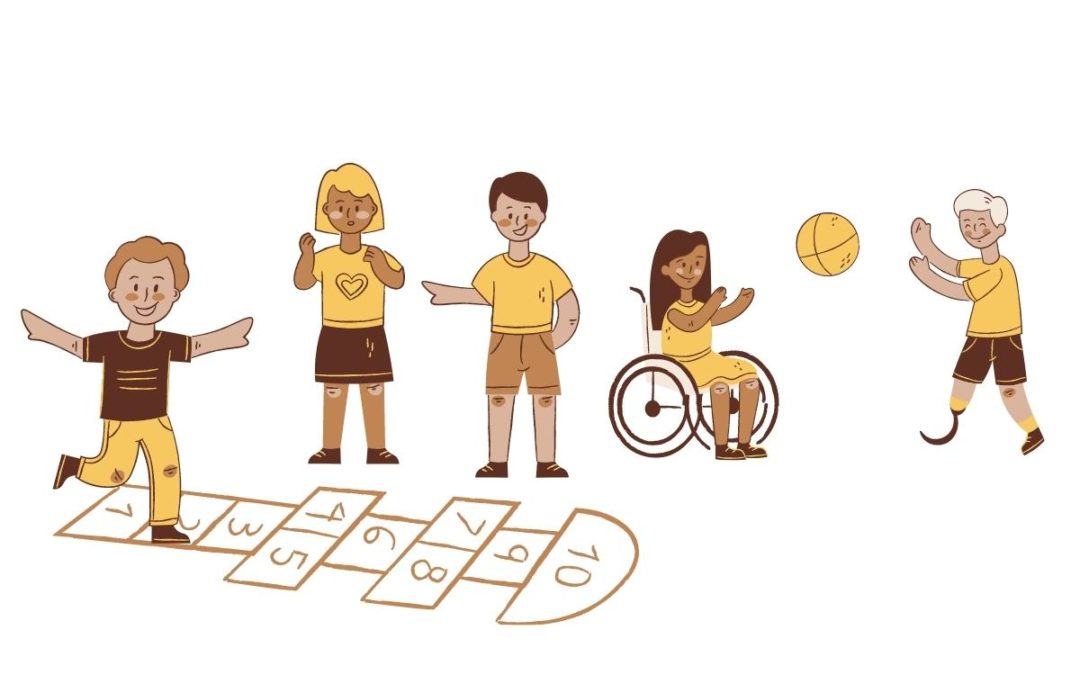 Last month my two oldest daughters (ages 6 and 4) competed in the San Antonio Highland Games dance competition. As excited as we all were, I was worried about one thing: They were competing against each other in the same age group. If that’s not a sibling rivalry catastrophe waiting to happen, I don’t know what is.
Last month my two oldest daughters (ages 6 and 4) competed in the San Antonio Highland Games dance competition. As excited as we all were, I was worried about one thing: They were competing against each other in the same age group. If that’s not a sibling rivalry catastrophe waiting to happen, I don’t know what is.
The day finally came, and I was pleasantly surprised. Not only was there a total lack of any rivalry between them, but they also supported each other beautifully. They were genuinely happy for each other.
We parents certainly can’t take all the credit for moments like that, but I do think there are some things my husband and I have done right in preventing sibling rivalry between our children. Here are three of those practices I was reflecting on after the Highland Games.
1. Start them young
My husband is the oldest of eight children. When he and his siblings were little, their parents would entrust the new baby to them, emphasizing this was their baby to care for and help.
One of my own earliest memories is going to the store the day my sister was born and picking out my very own outfit for her. By including me in this life-changing event, my parents made me feel confident and responsible for welcoming her home. I was an integral part of the event, not an outside observer. Now that we’re grown up, we’re still best friends.
Children tend to respond more positively to change when they feel empowered and involved. Enlist them in the life of their siblings from an early age so they feel a sense of closeness and involvement.
2. Make comparison your ally
I remember comparing myself to my sister when I was younger – not in a spiteful way, but rather in a detached, matter-of-fact way. Her eyes are a lighter shade of blue than mine. She’s a little bit taller. She’s better at the violin; piano is more my thing. This healthy variety of comparison can be used as an ally to enlist your children in each other’s success. It gets them used to the idea that people have different gifts and talents without allowing that fact to dampen their self-confidence.
For example, my 4-year-old was curious about her oldest sister’s first dance competition. For the week leading up the event, we looked at pictures of her sister and watched some videos of her first competition. Seeing the pictures and hearing stories were comforting for my younger daughter. It also eased my older daughter’s anxiety about her performance, since she could focus on coaching her little sister.
3. Set the example
 Exemplifying generosity of spirit and respect as parents is the first step to healthy relationships between siblings. Children are extremely sensitive to the interactions between their parents and caregivers.
Exemplifying generosity of spirit and respect as parents is the first step to healthy relationships between siblings. Children are extremely sensitive to the interactions between their parents and caregivers.
Rimm makes an interesting point about the tendency children have to identify with one parent or another. If one parent is regularly labeled as the “brains” and the other as the “beauty,” or a similar comparison, children might take to labeling themselves in the same way. Rimm encourages families to “consider both parents intelligent. When parents consider each other to be intelligent, their children have high regard for both. Regardless of which parent children identify with, they automatically consider themselves smart.”
Is sibling rivalry a problem? Or is it just a phase?
It’s important to distinguish normal rivalry from serious sibling rivalry issues. In an article in Psychology Today, psychologist Izzy Kalman explains the distinction between normal and problematic sibling rivalry:
“Part of the problem comes from the choice of the word ‘rivalry’ to describe the ongoing hostile relationship between siblings. Rivalry is not necessarily a bad thing. It often refers to the relationship between competitors, as between two sports team.
“This kind of rivalry hardly describes the situation we call sibling rivalry. It is not an ongoing saga of two siblings each trying to be better than the other. They are not playing fairly by any predetermined rules, and they don’t respect each other. They are angry, jealous and vengeful… They may even hate each other and wish the other were never born. Sometimes their hatred and resentment last a lifetime, as it is common to find adults who have completely cut off contact with their sibling, to the great anguish of their parents.”
Remember, every child is different, and every relationship between siblings is also different. There is a wide spectrum of factors that contributes to the amount and degree of sibling rivalry your children may or may not exhibit, such as gender and where they line up in sibling order.
One thing is for certain: Seeing your children support each other and cheer each other on is an amazing thing to witness. If you are concerned that your children may have a more serious problem with sibling rivalry, seek the help of an experienced professional to help you work through it as a family.









0 Comments